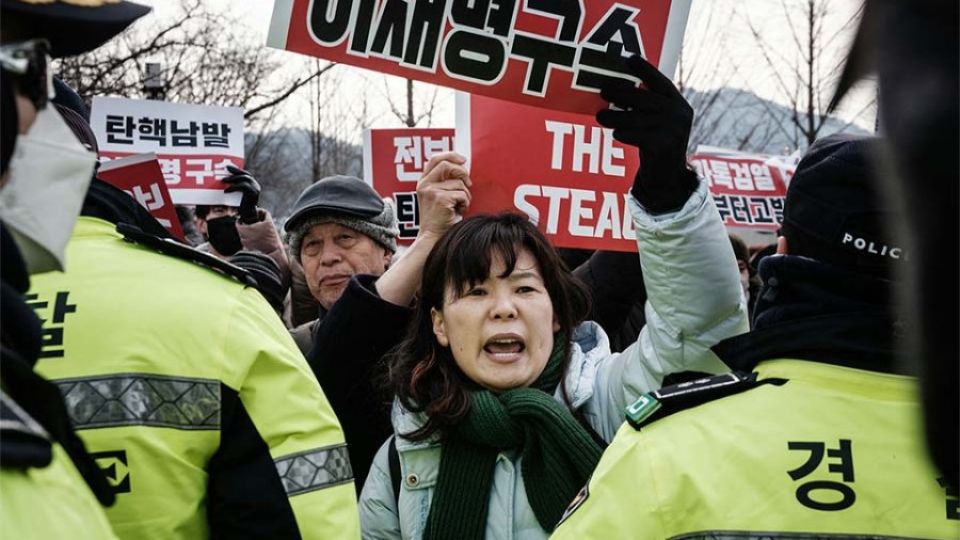January 20, 2025
SEOUL – President Yoon Suk Yeol, who attempted a failed self-coup last month, was taken into custody for questioning by investigators Wednesday, becoming the country’s first sitting president to be arrested.
However, the arrest of Yoon is unlikely to resolve the deepening political turmoil and social division any time soon. He was impeached by opposition-led parliament on Dec. 14 for his short-lived imposition of martial law that plunged the country into a wave of disbelief, confusion and outrage.
South Korea, once touted as an exemplary democratic society, is now widely viewed as a nation confronting a president who used a martial law declaration and military forces as a “mere warning” against his political opponents.
Even though democratic advancement often comes with a chaotic mix of progress and retrogression, what the now-impeached President Yoon has done to the nation is unprecedented in South Korea’s constitutional history. His hard-to-understand rationale for declaring martial law also had an immense impact on the country’s social, political and economic sectors.
Unfortunately, Yoon’s arrest and recalcitrant refusal to comply with questioning are expected to prolong and amplify the uncertainty that is plaguing South Korea at all levels.
The Corruption Investigation Office for High-ranking Officials arrested Yoon at his official residence in central Seoul on charges of insurrection and abuse of power. Unlike a previous attempt on Jan. 3 that led to a dramatic standoff between Yoon’s bodyguards and the investigators, the CIO, aided by substantial police backing, executed the detention warrant with no outbreak of violence.
But the deployment of massive police forces and investigators to arrest Yoon — broadcast around the world as major breaking news — is a stark reminder that the political crisis sparked by Yoon is still underway, and the nation has a long way to go to return to normalcy, even after the Constitutional Court puts out its ruling on Yoon’s impeachment.
Both Yoon and the CIO share responsibility for the dramatic confrontation that led to the arrest Wednesday. It is regrettable that neither side explored pragmatic compromises that could have defused political tensions. Yoon, who had vowed “not to avoid taking legal or political responsibility,” has undermined his own credibility by resisting the warrant’s execution. He repeatedly ignored the CIO’s summonses for questioning, further straining the situation. Meanwhile, the CIO found itself in a dispute over jurisdiction regarding the insurrection allegations and the choice of a court for obtaining the detention warrant.
Yoon, 64, remains defiant and unrepentant. In a prerecorded video released moments after his arrest, Yoon claimed that the investigation against him is “illegal.” His legal team also continues to claim that the detention warrant is “invalid.”
Yoon’s defiance even after his arrest is now feared to compromise the country’s institutional fabric and foster public distrust in legal procedures. Prolonged political instability has already eroded the country’s international stature, prompting major global credit-rating agencies to issue warnings of potential downgrades. It is also likely to take a long time to heal social fractures, epitomized by the wild protests for and against Yoon’s impeachment and his arrest outside the presidential residence.
The road ahead is rocky. The CIO must resist political pressures and ensure that its investigation is both impartial and procedurally flawless. Lawmakers from rival parties must exercise restraint as well. Instead of partisan wrangling over Yoon, they should make efforts to uphold the principles of neutrality and fairness for the ongoing probe, avoiding the temptation to exploit impeachment or the investigation for political gain.
With South Korea grappling with a crisis overlapping onto its economy, diplomacy and security, political parties and those involved in the investigation must prioritize their duties over factionalism. More importantly, Yoon must cooperate with the investigators and take “legal and political responsibility.”


